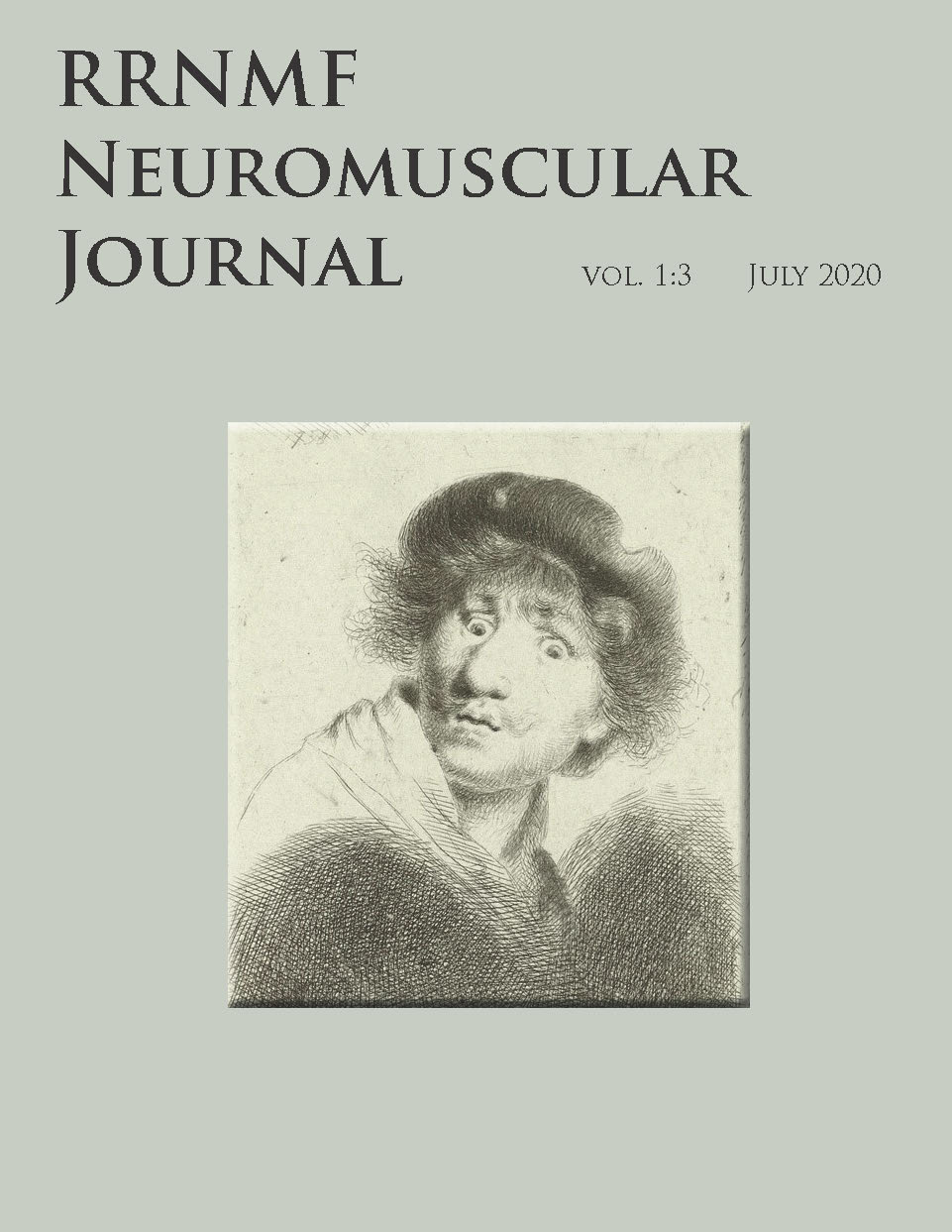Myasthenia Gravis Mimicking Acute Cerebrovascular Events
DOI:
https://doi.org/10.17161/rrnmf.v1i3.13573Keywords:
Myasthenia Gravis, Stroke mimics, acute cerebrovascular eventAbstract
Background and Objective: Myasthenia gravis (MG) is an immune-mediated disorder that can sometimes present acutely with a focal neurological deficit and thus mimic a cerebrovascular event. The objective of this study was to describe the clinical characteristics in a large cohort of patients who were initially misdiagnosed with an acute vascular event and later diagnosed with MG.
Methods: This is a retrospective chart review of patients who were initially diagnosed with an acute cerebrovascular event but subsequently found to have MG. The chart review was done for the period from January 2013 to December 2017, and patients with at least one-year follow-up included. Data are reported as means ± SEM, and the results reported using prevalence rates.
Results: Twenty-one patients met our inclusion criteria. Among them, 13 (61.9%) were female with a mean age of 56.7 ± 4.07 years. Ten were MGFA class 3a; seven were MGFA class 2b, 3 were MGFA 3b. Eighteen patients were acetylcholine receptor antibody positive; one was MuSK positive, and the rest two seronegative. Slurred speech (8 patients, 38.1%) was the most common symptom that resulted in misdiagnosis, followed by hemibody weakness (7 patients, 33.3%) and dysphagia (3, 14.3%). Smoking (12, 57.1%) and hypertension (11, 52.4%) were common risk factors for cerebrovascular disease. Small vessel disease was suspected the most common etiology (15, 71.4%) of the vascular event. Ten patients had received thrombolytic therapy, and 16 patients were on antiplatelets. 4 patients who presented recurrent symptoms placed on anticoagulants.
Conclusion: Acute presentation of bulbar symptoms and hemibody weakness resulted in the misdiagnosis of MG.
Downloads
Downloads
Published
Issue
Section
License
Copyright (c) 2020 Lakshmi Digala, Emily Bailey, Raghav Govindarajan

This work is licensed under a Creative Commons Attribution-NonCommercial-NoDerivatives 4.0 International License.

